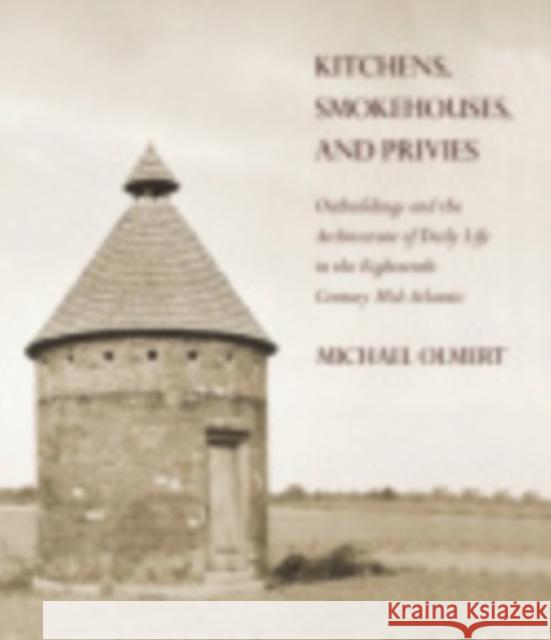Kitchens, Smokehouses, and Privies » książka
Kitchens, Smokehouses, and Privies
ISBN-13: 9780801447914 / Angielski / Twarda / 2009 / 304 str.
In Kitchens, Smokehouses, and Privies, Michael Olmert takes us into the eighteenth-century backyards of colonial America. He explores the many small outbuildings that can still be found at obscure rural farmsteads throughout the Tidewater and greater mid-Atlantic, in towns like Williamsburg and Annapolis, and at elite plantations such as Mount Vernon and Monticello. These structures were designed to support the performance of a single task: cooking food; washing clothes; smoking meat; storing last winter's ice; or keeping milk, cheese, and cream fresh. Privies and small offices are also addressed, as is the dovecote, in which doves were raised for their eggs, squab meat, feathers, and fertilizer. Often, these little buildings were clustered in such a way as to resemble a small village, knit together by similar design details and building materials: they were all constructed in weatherboards or in brick, for instance, or were arranged in a single file or positioned at the four corners of the yard.In this appealing book, featuring nearly a hundred crisp black-and-white photographs, Olmert explains how these well-made buildings actually functioned. He is riveted by the history of outbuildings: their architecture, patterns of use, folklore, and even their literary presence. In two appendixes he also considers octagonal and hexagonal structures, which had special significance, both doctrinal and cultural, in early America.Archaeologists and historians still have many questions about the design and function of outbuildings-questions that are often difficult to answer because of the ephemeral nature of these structures; they were not documented-any more than laundry rooms and storage units inspire rhapsodies today. Olmert's book, deeply grounded in scholarship, eminently readable, and profusely illustrated, takes these buildings seriously and gives them the attention they deserve.











